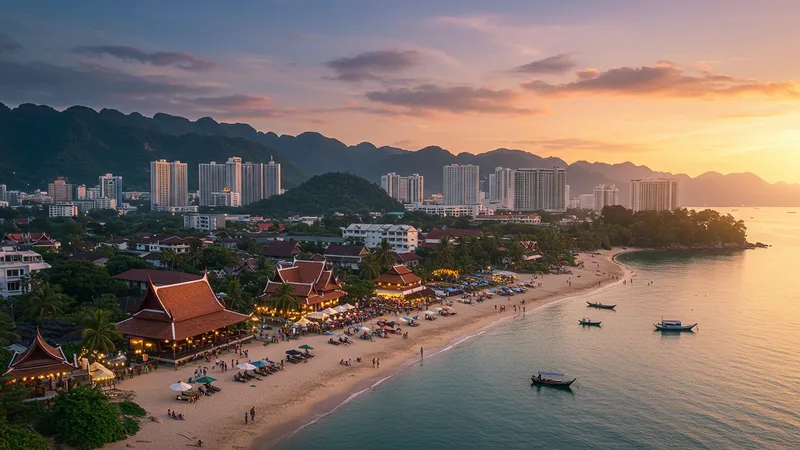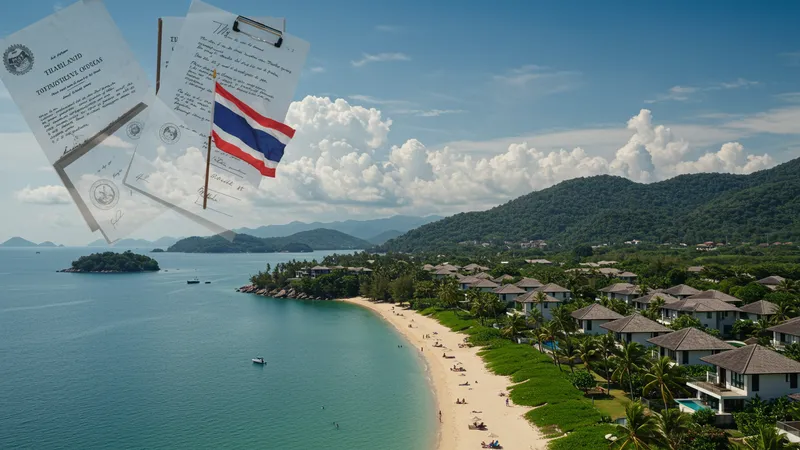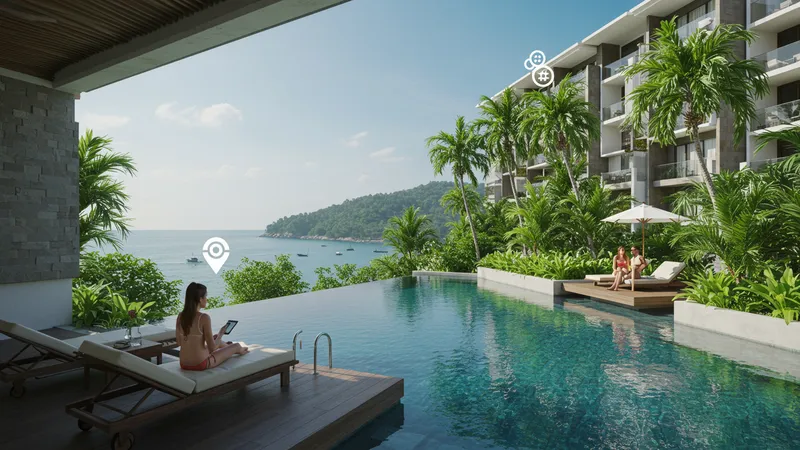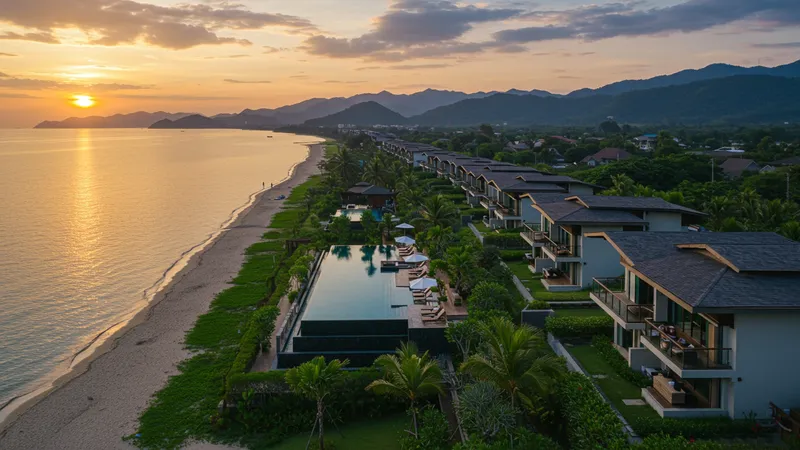

Investing in vacation properties has become a favored strategy for those seeking both leisure spaces and long-term value. The concept of an “Ultimate Guide to Vacation Properties in Thailand” focuses on exploring the best locations, property types, ownership models, and essential tips that can elevate your experience as a property owner or holidaymaker. Specifically, this guide unveils the intricate details of purchasing, managing, and making the most out of vacation homes within Thailand’s diverse property landscape—ranging from beachfront villas to city condos and mountain retreats.
Thailand stands out as a major destination for vacation property investment due to its tropical climate, vibrant culture, and breathtaking landscapes. This guide dives deep into the practicalities of property acquisition, highlighting regulatory considerations, financial planning, and smart management strategies. Whether your goal is maximizing time spent in paradise, generating rental returns, or simply enjoying a personal sanctuary, the approach remains rooted in Thai market realities.

Each vacation property hub in Thailand offers distinct benefits. Koh Samui’s beach villas attract those seeking privacy and oceanfront views, while Phuket’s condos combine convenience and luxury, especially for international travelers. Pattaya appeals to buyers interested in vibrant city life near the coast, and Chiang Mai’s homes provide tranquility among green hills. Hua Hin, favored for its golf courses and family atmosphere, also appeals to retirees.
Ownership models in Thailand come with important nuances. While foreigners can purchase condominiums outright in many developments, freehold land ownership is limited, often leading to leasehold arrangements for villas and houses. Understanding these legal frameworks safeguards your investment and ensures compliance with Thai regulations.
Rental returns are another crucial consideration. Tourist hotspots like Phuket or Pattaya tend to enjoy high year-round occupancy rates due to strong demand for short-term rentals. Chiang Mai and Hua Hin, though more seasonal, can attract long-term holidaymakers or digital nomads, helping to generate income and offset management costs over time.
Most buyers are drawn not only by lifestyle but also by Thailand’s competitive pricing compared to similar destinations worldwide. Property management companies facilitate hassle-free experiences—handling everything from guest check-ins to maintenance—allowing owners to enjoy personal stays as well as passive returns.
As you can see, Thailand’s vacation property landscape is as multilayered as its scenic vistas. The deeper details reveal even more valuable insights ahead, from financing options to insider advice for maximizing rental yields and lifestyle benefits.
Property ownership laws in Thailand are distinct, particularly for non-citizens. While foreigners can legally own condominium units (provided total foreign ownership does not exceed 49% of a building), acquiring landed properties requires alternative approaches, such as 30-year leaseholds or forming a Thai limited company. These options provide ways to enjoy a house or villa legally, with certain rights and renewal possibilities, but understanding each nuance is essential before proceeding with any purchase.

The process of purchasing vacation properties often includes due diligence steps such as title deed verification and ensuring there are no outstanding encumbrances on the land. Buyers are also advised to hire local legal advisors with expertise in property transactions, especially when considering developments like Koh Samui Beach Villas or Hua Hin Golf Residences. This prevents costly mistakes and secures your position as a foreign investor.
In comparison to some countries, Thailand implements stricter criteria for foreign investment in residential real estate. However, the flexibility of the condominium market means international buyers can often find urban or oceanfront options, such as Phuket Luxury Condos or Pattaya Seaview Apartments, with straightforward procedures and ample amenities.
Potential buyers should also be aware of ongoing obligations such as property taxes and maintenance fees. These costs vary by location and type—for example, villa developments in tourist zones like Koh Samui often include community maintenance charges, whereas city condos carry monthly fees for shared facilities. Factoring in these details helps create realistic financial plans and avoids surprises down the line.
The appeal of Thailand’s vacation real estate lies in its remarkable amenities. On sites like Koh Samui Beach Villas, buyers can expect private infinity pools, open-air living spaces, and direct beach access. Properties in resorts usually offer additional services such as concierge, security, and in-villa dining, creating a true luxury experience for both owners and guests alike.

Phuket’s luxury condos, featured on Phuket Luxury Condos, often boast rooftop pools, panoramic ocean views, fitness centers, and proximity to lively neighborhoods. For those seeking an urban lifestyle paired with tropical touches, these high-rise properties offer outstanding comfort within reach of Thailand’s world-famous beaches.
Pattaya’s seaview apartments cater to social lifestyles with features like communal gardens, large balconies, and entertainment zones. Similarly, Chiang Mai Mountain Homes offer lush surroundings, gardens, and design elements inspired by northern Thai traditions—perfect for those who appreciate peace and authenticity over bustling nightlife.
Hua Hin’s golf residences are distinct for their connection to elite courses and wellness facilities. Many developments offer resort memberships, spa services, and exclusive dining for residents. This blend appeals to both retirees and families seeking laid-back luxury in a scenic environment, reflecting a different facet of Thailand’s property diversity.
Short-term rental demand continues to fuel returns for many vacation property owners in Thailand. Markets in Phuket and Pattaya, in particular, see high average occupancy rates throughout the year due to their appeal among tourists and proximity to travel infrastructure. Professional rental management services often handle bookings, marketing, and guest services, leaving property owners free from daily operational concerns.

Platforms supporting vacation rentals, such as Airbnb or direct bookings via local agents, allow owners of Phuket Luxury Condos and Pattaya Seaview Apartments to optimize their revenue potential. Many buyers use these channels to target international travelers looking for unique holiday experiences, resulting in competitive yields compared to long-term leases.
In mountain or golf-focused destinations like Chiang Mai and Hua Hin, seasonality may impact rental patterns. However, properties positioned for longer stays or unique experiences—such as digital nomad accommodation—can achieve consistent bookings outside peak tourist months. Owners who cater to niche segments often report higher satisfaction and stable occupancy.
Partnering with established property management firms simplifies everything from guest communications to ongoing maintenance, particularly for overseas owners. These providers ensure legal compliance with local rental regulations, timely cleaning, and prompt response to issues—an invaluable support system for maintaining both income and guest satisfaction.
The Thai vacation property market demonstrates resilience, driven by steady demand for leisure and wellness travel. Coastal and resort destinations remain at the forefront, but urban and mountainous regions are also experiencing growth as preferences shift toward diverse and flexible living options. Options such as Chiang Mai Mountain Homes attract those seeking creative inspiration or extended retreats, broadening the scope beyond traditional tourism.

Improved infrastructure, access to international airports, and the government’s focus on tourism development all contribute to the country’s appeal. Properties linked to major amenities, such as Hua Hin’s golf residencies or Phuket’s luxury developments, may benefit from long-term appreciation and enduring popularity with global visitors.
Many owners cite intangible rewards, such as immersion in Thai culture, culinary adventures, or improving quality of life, as central reasons for acquiring vacation homes. Investment returns are often viewed as complementary, rather than the sole motivator, reinforcing the unique “dual benefit” of blissful leisure and strategic property ownership.
As digital nomadism grows and remote work policies spread, the desirability of flexible, well-managed Thai vacation homes is likely to climb. Owners who understand market trends, tailor their offerings, and stay abreast of legal developments will be best positioned to enjoy both lifestyle benefits and steady usage of their dream properties.